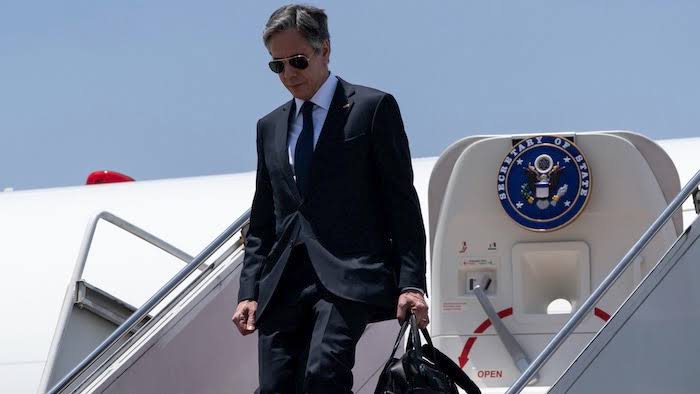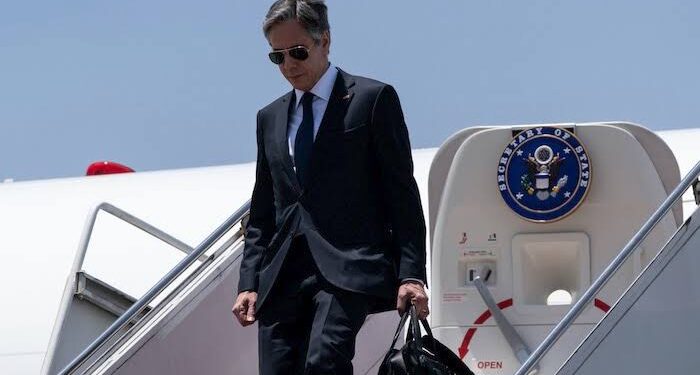U.S. Secretary of State Antony Blinken arrived in Doha on Tuesday, to continue efforts to secure a Gaza ceasefire and a hostage release deal. The negotiations remain fraught with major disputes between Israel and Hamas.
Earlier in the day, Blinken met with Egyptian President Abdel-Fattah El-Sisi in Cairo. During their meeting, Sisi, who has been mediating the talks alongside the U.S. and Qatar, urged an end to the 10-month Gaza war and warned of the potential of a wider regional conflict.
On Monday, Blinken visited Israel after which he announced that Prime Minister Benjamin Netanyahu accepted a U.S. “bridging proposal” to narrow the gaps after previous talks stalled, urging Hamas to accept the proposal as well. Although Hamas had not outrightly rejected the proposal, they have accused Israel and the U.S. of reneging on past agreements and conducting negotiations in bad faith.
Gaza Conflict and Ceasefire Talk
A senior U.S. official has expressed confidence in ceasefire talks continuing this week. The Gaza war, sparked by a Hamas attack on October 7, 2023, has resulted in over 40,000 deaths, according to Palestinian health authorities. On Tuesday, Israeli forces recovered six hostage bodies, leaving 109 hostages in Gaza, with a third believed to be dead. Israeli forces continued to battle Hamas militants in Gaza, with Palestinian health officials reporting 39 deaths from Israeli strikes on Tuesday. The Gaza health ministry also highlighted a polio outbreak, worsened by poor living conditions and delayed vaccines.
U.S. Proposal and Hamas’s Stance
Blinken has described the latest diplomatic push as “probably the best, possibly the last opportunity” to reach an agreement. He noted that his meeting with Netanyahu was constructive but reiterated that Hamas must accept the bridging proposal for progress to be made. However, officials from the U.S., Hamas, Israel, Egypt, and Qatar have not disclosed the specifics of the proposal or how it differs from previous versions.

Hamas refuted U.S. claims that it was backing away from a deal, asserting that Egyptian and Qatari mediators are aware of its positive approach to negotiations.
The group accused Netanyahu of obstructing an agreement by introducing new demands. Hamas maintained that it remains committed to the terms agreed upon with mediators in July, based on a U.S. proposal from May. Netanyahu, however, denies blocking a deal.
Persistent Disagreements
Negotiations remain deadlocked over Israel’s military presence in Gaza, the movement of Palestinians, and the terms of a potential prisoner swap. Hamas demands a permanent ceasefire, while Israel insists that the war can only end with the complete dismantling of Hamas as a military and political entity.
Egypt’s Role in the Philadelphi Corridor
Egypt is focused on the Philadelphi Corridor, the narrow strip of land along the Egypt-Gaza border that Israeli forces seized in May. Both Hamas and Egypt oppose the continued presence of Israeli troops in the area, but Netanyahu insists that they are necessary to prevent weapons smuggling into Gaza. The U.S. has proposed an international presence there, which Cairo may accept for a limited period. A senior U.S. official dismissed reports suggesting that Netanyahu might have convinced Blinken on this point.
Sisi’s Call for a Two-State Solution
President Sisi emphasized that a Gaza ceasefire should lead to broader recognition of a Palestinian state and the implementation of a two-state solution, essential for regional stability.

















